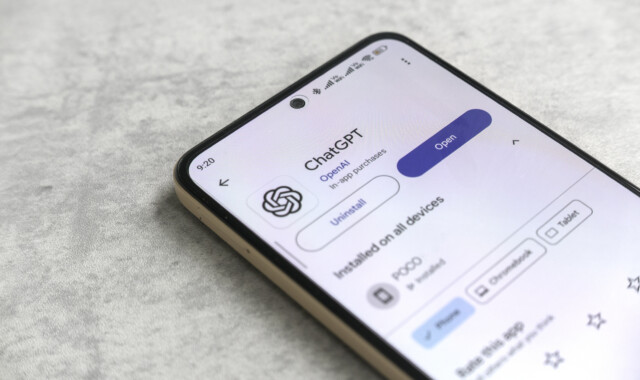Contents:
- 1. Identify areas to cover in advance
- 2. Plan a range of activities ahead of time
- 3. Introduce yourself
- 4. Ask the student how they best learn and study
- 5. Keep it interesting and dynamic
- 6. Check for understanding
- 7. Summarise and review for the next session
- 8. Set homework if you have a series of sessions
Congratulations on becoming a tutor! As you embark on this exciting journey in your field of expertise, the prospect of your first tutoring session may be both exhilarating and a bit overwhelming. While brimming with ideas, you may find yourself lacking a concrete plan on where to start. You might be filled with trepidation and uncertainty about introducing the topic and interacting with a new student. Even if you’re an experienced tutor, each student is different, and every tutoring session presents new challenges.
In this article, I’ll provide advice on how to create an interactive and productive learning experience, as well as discussing ways to make your tutoring sessions engaging and enjoyable for both you and your student.
1. Identify areas to cover in advance
Before your first tutoring session, it’s a good idea to send a message to your student to see what they would like to cover. Going in without a plan can be anxiety-inducing, and you may seem ill-prepared. Your student may have exams looming and require help with approaching and answering different question types. Or, they may have missed a whole topic at school and need to catch up. Understanding their requirements ahead of time will put both of your minds at ease.
2. Plan a range of activities ahead of time
Tutoring sessions usually last one hour. Depending on the activities you do in that time, they can pass by really quickly or feel hard to fill. Interactive sessions are always more enjoyable for both parties. If you’re tutoring virtually, using an online whiteboard like FigJam or Miro can allow you to interact with text, post-it notes, images, and drawings synchronously with your student. If you’re a PMT tutor, you can use their integrated online whiteboard, LessonSpace, to easily collaborate with your students.

3. Introduce yourself
Begin your first tutoring session with a smile and a friendly introduction. This will help your student feel at ease and more comfortable participating in the session. Ask if they have any questions before you begin, and then take them through what you plan to cover in the next hour.
It’s always good to share the learning outcomes with the student at the start of the session. This will give them a clear idea of what to expect and help them feel confident that they have achieved these objectives by the end of the session. Additionally, you can be confident that you have been clear and rigorous in defining the session’s objectives.
4. Ask the student how they best learn and study
Each student learns differently, and some may not know how best they learn. Some students will feel more comfortable with images and diagrams. Others may need to write things out for information to be firmly embedded in their minds. Asking students how they best learn is crucial to understanding what teaching methods will work for them. If a student doesn’t do well with large amounts of text, then providing them with it won’t help consolidate their learning. To enhance their learning experience, offer a variety of ways to present topic information and provide links to videos or PDFs that they can access in their own time.
5. Keep it interesting and dynamic
No one likes a boring lesson! Students might encounter this daily at school, and now they are using their leisure time to learn more with you, so keep it interesting and dynamic.
Remember to be patient and kind with your students. You want them to grow in confidence and feel like they are improving. You will also need passion for your subject. If you’re enthusiastic about what you’re teaching, your students are more likely to pay attention and learn more effectively. Encouragement and enthusiasm are key!

6. Check for understanding
As a tutor, it’s not enough to simply review key points and ideas with your student. You need to ensure that they actually understand what you’re saying. Ask concept-checking questions and take the time to explain concepts in different ways if it isn’t sinking in initially. If your student claims to understand but seems uncertain or hesitant, it’s a good idea to have some exam questions up your sleeve ready to check their understanding. Answering exam questions is an art in itself, so even a few “what is…” and “why is…” open-ended questions are good to build upon before introducing exam questions.
One of the best parts of being a tutor is when you see the metaphorical light bulbs go off in your student’s head, and they finally grasp a concept that they’ve been struggling with for a long time!
7. Summarise and review for the next session
When you have multiple sessions with a student, it’s a good idea to summarise what you’ve covered at the end of each session in preparation for the next. Even if you didn’t cover everything as planned, it’s a great idea to have a general discussion about the key points before they leave.
You can refer back to the learning outcomes and ask the student if they feel these have all been covered. You can also ask in advance what they’d like to review in the next session. This is a great way to wrap up the session and check if everything has been understood. You’ll both feel good about the progress that has been made, and the student will hopefully feel more confident about the topic.

8. Set homework if you have a series of sessions
If you have a keen student who wants to be challenged further, then you can set them homework. It doesn’t have to be extensive; finishing off an exam question, watching a relevant video, reading and highlighting key points in a passage, or making revision cards can be useful. It can be difficult for students to stay motivated and committed to learning, especially when there is a lot of material to remember and apply. However, staying consistent and on track is important.
The first portion of the next session can be spent reviewing that piece of work; it is a nice way to begin and shows continuity of learning. Read more on some of the benefits of homework.
So there you have it. 8 top tips to help you ensure your first tutoring session is organised, informative and dynamic! These approaches will help you see improved results and increased confidence in your students, and you will also develop and grow as a tutor.
Good luck with your first tutoring session!








Concise and informative!
I will feel better to become a tutor
I would love to tutor nvc students level 2 office practices, wholesale and retail and business practices